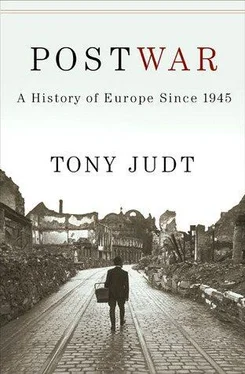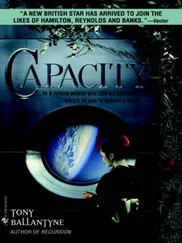Allcock, John B. Explaining Yugoslavia . New York: Columbia University Press, 2000.
Carter, April. Democratic Reform in Yugoslavia: The Changing Role of the Party . London: Frances Pinter, 1982.
Dedijer, Vladimir. The Battle Stalin Lost: Memoirs of Yugoslavia, 1948-1953 . New York: Viking Press, 1970.
Drakulić, Slavenka. How We Survived Communism and Even Laughed . London: Hutchinson, 1992.
Judah, Tim. The Serbs: History, Myth, and the Destruction of Yugoslavia . New Haven: Yale University Press, 2000.
Lampe, John R. Yugoslavia as History: Twice There Was a Country . New York: Cambridge University Press, 2000.
Lampe, John R. Yugoslav-American Economic Relations since World War II . Durham, NC: Duke University Press, 1990.
Malcolm, Noel. Kosovo: A Short History . New York: New York University Press, 1998.
Ron, James. Frontiers and Ghettos: State Violence in Serbia and Israel . Berkeley: University of California Press, 2003.
Tanner, Marcus. Croatia: A Nation Forged in War . New Haven: Yale University Press, 2001.
Unfinished Peace: Report of the International Commission on the Balkans . Washington D.C.: Carnegie Endowment, 1996.
Wachtel, Andrew. Making a Nation, Breaking a Nation: Literature and Cultural Politics in Yugoslavia . Stanford, CA: Stanford University Press, 1998.
West, Rebecca. Black Lamb and Grey Falcon: The Record of a Journey Through Jugoslavia in 1937 . London: Melbourne Macmillan, 1968.
Cronin, James E. The World the Cold War Made: Order, Chaos and the Return of History . New York: Routledge, 1996.
Dockrill, M. L. The Cold War, 1945-1963. Atlantic Highlands, NJ: Humanities Press International, 1988.
FitzGerald, Frances. Way out There in the Blue: Reagan, Star Wars, and the End of the Cold War . New York: Simon & Schuster, 2000.
Gaddis, John Lewis. The Long Peace: Inquiries Into the History of the Cold War. New York: Oxford University Press, 1987.
———. We Now Know: Rethinking Cold War History . Oxford: Oxford University Press, 1997.
Gray, William Glenn. Germany’s Cold War: The Global Campaign to Isolate East Germany, 1949-1969 . Chapel Hill: University of North Carolina Press, 2003.
Gress, David. From Plato to NATO: The Idea of the West and its Opponents . New York: Free Press, 1998.
Halle, Louis Joseph. The Cold War as History . New York: HarperPerennial, 1991.
Hanhimäki, Jussi, and O. A. Westad, eds. The Cold War: A History in Documents and Eyewitness Accounts . New York: Oxford University Press, 2003.
Isaacs, Jeremy, and Taylor Downing. Cold War: An Illustrated History, 1945-1991 . Boston: Little, Brown & Co., 1998.
Leffler, Melvyn P., and David S. Painter. Origins of the Cold War: An International History . London: Routledge, 2005.
Murphy, David E., Sergei A. Kondrashev, and George Bailey. Battleground Berlin: CIA vs. KGB in the Cold War . New Haven: Yale University Press, 1997.
Weiler, Peter. British Labour and the Cold War . Stanford, CA: Stanford University Press, 1988.
Zubok, V. M., and Konstantin Pleshakov. Inside the Kremlin’s Cold War: From Stalin to Khrushchev . Cambridge, MA: Harvard University Press, 1996.
Aldgate, Anthony, James Chapman, and Arthur Marwick. Windows on the Sixties: Exploring Key Texts of Media and Culture . London: I.B. Tauris, 2000.
Bartov, Omer. The “Jew” in Cinema: From The Golem to Don’t Touch my Holocaust. Bloomington: Indiana University Press, 2005.
Blécourt, Willem de, and Owen Davies. Witchcraft Continued: Popular Magic in Modern Europe . Manchester: Manchester University Press, 2004.
Carroll, David. French Literary Fascism: Nationalism, Anti-Semitism, and the Ideology of Culture . Princeton: Princeton University Press, 1995.
Chudo, Alicia. And Quiet Flows the Vodka, or, When Pushkin Comes to Shove: The Curmudgeon’s Guide to Russian Literature and Culture, with the Devil’s Dictionary of Received Ideas, Alphabetical Reflection on the Loathsomeness of Russia, American Academia, and Humanity in General . Evanston, IL: Northwestern University Press, 2000.
Clark, Katerina. Petersburg, Crucible of Cultural Revolution . Cambridge, MA: Harvard University Press, 1995.
Cohn, Ruby. From Desire to Godot: Pocket Theater of Postwar Paris . Berkeley: University of California Press, 1987.
Dalle Vacche, Angela. The Body in the Mirror: Shapes of History in Italian Cinema . Princeton: Princeton University Press, 1992.
Demetz, Peter. After the Fires: Recent Writing in the Germanies, Austria, and Switzerland . San Diego: Harcourt Brace Jovanovich, 1992.
Dennis, David B. Beethoven in German Politics, 1870-1989 . New Haven: Yale University Press, 1996.
Durgnat, Raymond. A Mirror for England: British Movies from Austerity to Affluence . New York: Praeger, 1971.
Ellwood, David W., Rob Kroes, and Gian Piero Brunetta. Hollywood in Europe: Experiences of a Cultural Hegemony . Amsterdam: Free University Press, 1994.
Fehrenbach, Heide. Cinema in Democratizing Germany: Reconstructing National Identity After Hitler . Chapel Hill: University of North Carolina Press, 1995.
Figes, Orlando. Natasha’s Dance: A Cultural History of Russia . New York: Metropolitan Books, 2002.
Forrester, Sibelan E. S., Magdalena J. Zaborowska, and Elena Gapova. Over the Wall/After the Fall: Post-Communist Cultures Through an East-West Gaze. Bloomington, Indiana University Press, 2004.
Goetz-Stankiewicz, Marketa. Dramacontemporary: Czechoslovakia . New York: Performing Arts Journal Publications, 1985.
Hanák, Péter. The Garden and the Workshop: Essays on the Cultural History of Vienna and Budapest . Princeton: Princeton University Press, 1998.
Haraszti, Miklós. The Velvet Prison: Artists Under State Socialism . New York: Basic Books, 1987.
Harker, David. One for the Money: Politics and Popular Song . London: Hutchinson, 1980.
Hewison, Robert. Culture and Consensus: England, Art and Politics since 1940 . London: Methuen, 1995.
———. In Anger: British Culture in the Cold War, 1945-60 . New York: Oxford University Press, 1981.
———. Too Much: Art and Society in the Sixties, 1960-75 . New York: Oxford University Press, 1987.
Insdorf, Annette. Indelible Shadows: Film and the Holocaust . New York: Cambridge University Press, 2003.
Kaes, Anton. From Hitler to Heimat: The Return of History as Film . Cambridge, MA: Harvard University Press, 1989.
Laqueur, Walter, and George L. Mosse. Literature and Politics in the Twentieth Century . New York: Harper & Row, 1967.
Marks, Steven G. How Russia Shaped the Modern World: From Art to Anti-Semitism, Ballet to Bolshevism . Princeton: Princeton University Press, 2003.
Marwick, Arthur. The Sixties: Cultural Revolution in Britain, France, Italy, and the United States, c. 1958-c. 1974 . Oxford: Oxford University Press, 1998.
Nepomnyashchy, Catharine Theimer. Abram Tertz and the Poetics of Crime . New Haven: Yale University Press, 1995.
O’Flaherty, Kathleen Mary Josephine. The Novel in France, 1945-1965: A General Survey . Cork, IE: Cork University Press, 1973.
Poiger, Uta G. Jazz, Rock, and Rebels: Cold War Politics and American Culture in a Divided Germany . Berkeley: University of California Press, 2000.
Читать дальше












